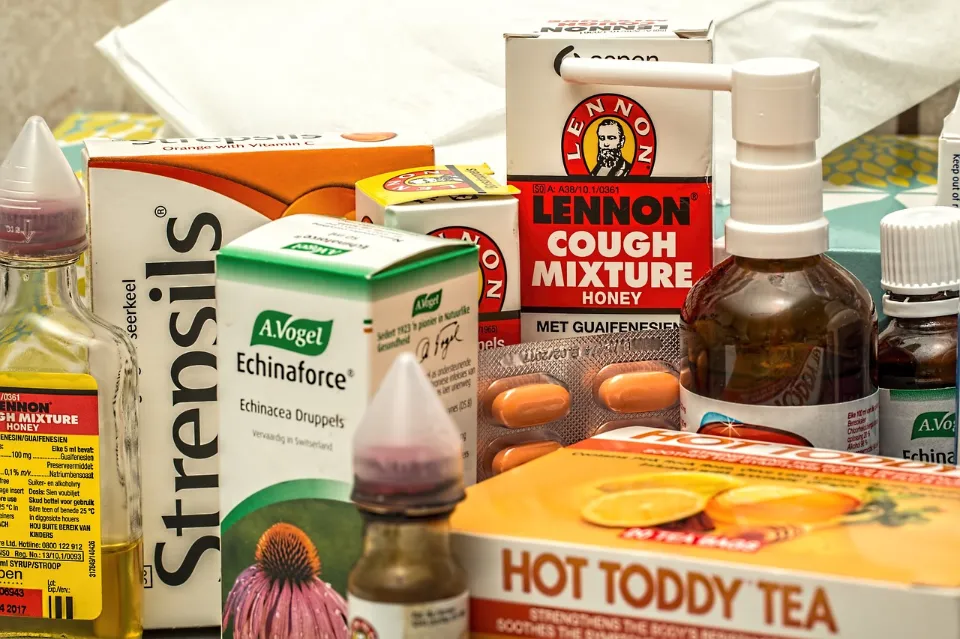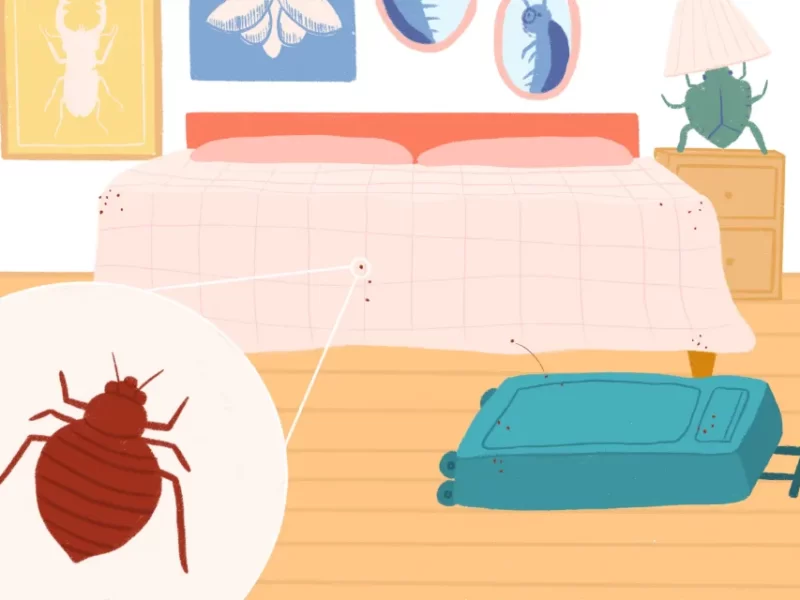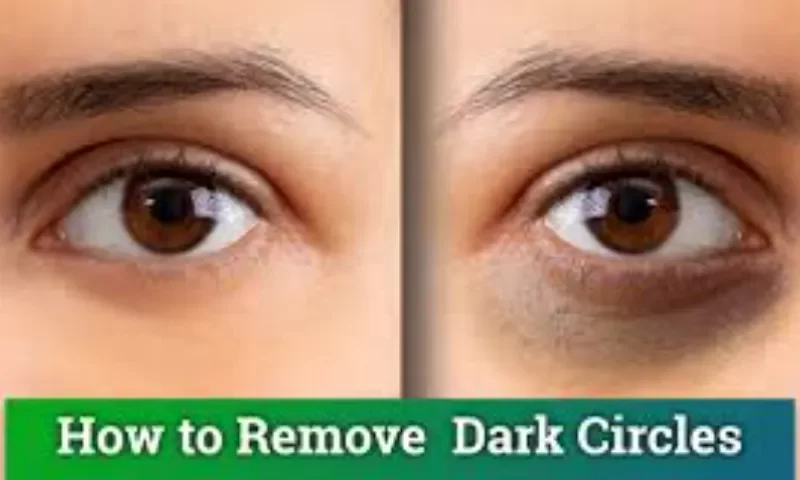A sore throat and fever are two symptoms of the common sudden-onset bacterial infection streptococcal pharyngitis. Streptococcus pyogenes, also known as type A streptococcus, is the bacterium that causes it. In order to avoid the serious complication known as rheumatic fever, antibiotics are typically used to treat the bacterial infection known as strep throat.
However, even with antibiotics, you might still experience fever and sore throat for a couple of weeks after you get better. While you’re healing, you can use some at-home remedies to help with your symptoms.
This article will first go over more information on strep throat before listing 6 safe at-home treatments that might help you feel better. Additionally, this article will provide you with some preventative advice and actions you can take.
Related: 6 Home Remedies For Bed Sores In Elderly – Elder VIP
What is Strep Throat?
A bacterial infection called strep throat can cause scratchy, sore throat. Only a small percentage of sore throats are caused by strep throat.
Strep throat complications, such as kidney inflammation or rheumatic fever, can develop if left untreated. Rheumatic fever can lead to painful and inflamed joints, a specific type of rash, or heart valve damage.
Although it can affect anyone, children are most frequently affected by strep throat. Consult your doctor right away for testing and treatment if you or your child exhibit any strep throat symptoms.
Signs and symptoms of strep throat can include:
- Painful swallowing
- Throat pain that usually comes on quickly
- Nausea or vomiting, especially in younger children
- Red and swollen tonsils, sometimes with white patches or streaks of pus
- Tiny red spots on the area at the back of the roof of the mouth (soft or hard palate)
- Fever
- Body aches
- Headache
- Swollen, tender lymph nodes in your neck
- Rash
Although you or your child may exhibit many of these symptoms, strep throat is not always the cause. It’s possible that a viral infection or another illness is what’s causing these symptoms and signs. That’s why your doctor generally tests specifically for strep throat.
How to Get Rid of Strep Throat at Home: 5 Easy Tips
Drinks
Bone Broths
Chicken soup has been consumed for centuries and is frequently touted as being therapeutic. While it cannot actually cure the flu, a cold, or your sore throat, it does have some benefits.
Soup broths provide fluids for hydration, and the warmth of the liquid can ease a sore throat. Bone broth is sometimes used interchangeably to mean soup stock.
While some online sources will assert that bone broth can treat illnesses because it has more nutrients, studies have found that nutrient concentrations in bone broths are unreliable. Bone broth can help you stay hydrated, but it won’t help you get rid of a sore throat any quicker than chicken soup, chamomile tea, or water.
Honey
Honey is a traditional home remedy that has been used for hundreds of years to treat a variety of ailments, including sore throats. Honey has natural antibacterial properties. 2 tablespoons of honey should be dissolved after being dissolved in warm water or tea. Repeat a few times per day as needed. (A child under 1 should never be given honey.)
Tea
A traditional treatment for many illnesses is herbal tea. A sore throat can be relieved by the warm liquid. Some tea herbs might be therapeutically useful as well. It’s possible that chamomile has healing anti-inflammatory and antioxidant properties.

Numerous illnesses, such as digestive upset, respiratory infections, and inflammation of the throat’s mucous membranes, have historically been treated with it. To relieve a sore throat, make as many cups of chamomile tea as desired. For a more effective strategy, add honey.
While chamomile can be soothing and is unlikely to be harmful, there is no scientific proof that it can treat strep throat or any other infection.
Medicines
The discomfort or pain caused by strep throat may be lessened with home remedies, but a doctor’s visit is still necessary to determine whether antibiotics are necessary.
The three most common antibiotics prescribed for strep throat are:
Penicillin
Depending on age, dosages can range from 250 mg twice daily to 500 mg twice daily. Penicillin usually needs to be taken for 10 days in order to treat strep throat.
Cephalexin
Cephalexin is commonly prescribed for people who are allergic to penicillin. For children, the dosage is based on body weight, while the typical adult dose is 500mg twice daily for 10 days.
Amoxicillin
Dosages are based on body weight for children, with a maximum daily dose of 1000 mg. 500 mg twice daily for adults or 1,000 mg of extended-release daily are typical prescriptions. Amoxicillin usually requires 10 days to treat strep throat.
Even if you feel better, continue taking the prescribed amount of antibiotics until the end. Infections can return and lead to infections that are resistant to antibiotics if you stop treating them too soon.

Coconut Oil
demonstrates a decrease in the number of strep bacteria and other toxins in the mouth. One to two tablespoons of coconut oil should be swished around in the mouth for at least ten minutes before being spat out, followed by mouthwash and tooth brushing.
Humidifiers
An excellent way to reduce the dryness and discomfort brought on by a sore throat is to use a humidifier. Humidifiers help to moisten the air and improve sinus airways. Use one in your bedroom while you sleep, especially if the sore throat makes it hard to rest.
Salt
can eliminate oral bacteria and relieve painful swelling while also soothing a sore throat. The salt’s antibacterial properties are also known to improve respiratory conditions. Warm water (8 ounces, or 237 milliliters) and 1/4 teaspoon (1.42 grams) of table salt should be combined. After gargling, make sure to spit the liquid out.
Conclusion
You can manage some strep throat symptoms at home by starting with medication and food, which includes humidifiers. The most crucial thing, however, is to rest, and if your symptoms are too severe, you should see a doctor.
FAQs
Will Strep Throat Go Away on Its Own?
If you think you might have strep throat, we strongly advise that you visit a doctor. Whether or not you receive antibiotic treatment, strep throat typically goes away in three to seven days. If you don’t take antibiotics, though, you run the risk of complications like rheumatic fever and can spread the infection for up to three weeks.
How Do U Know If U Have Strep Throat?
Because strep throat can occasionally lead to rheumatic fever, antibiotics are given. Strep throat often includes a fever (greater than 101 degrees Fahrenheit or 38.3 degrees Centigrade), white draining patches on the throat, and swollen or tender lymph glands in the neck. Pain in the stomach and a headache is common in children.



